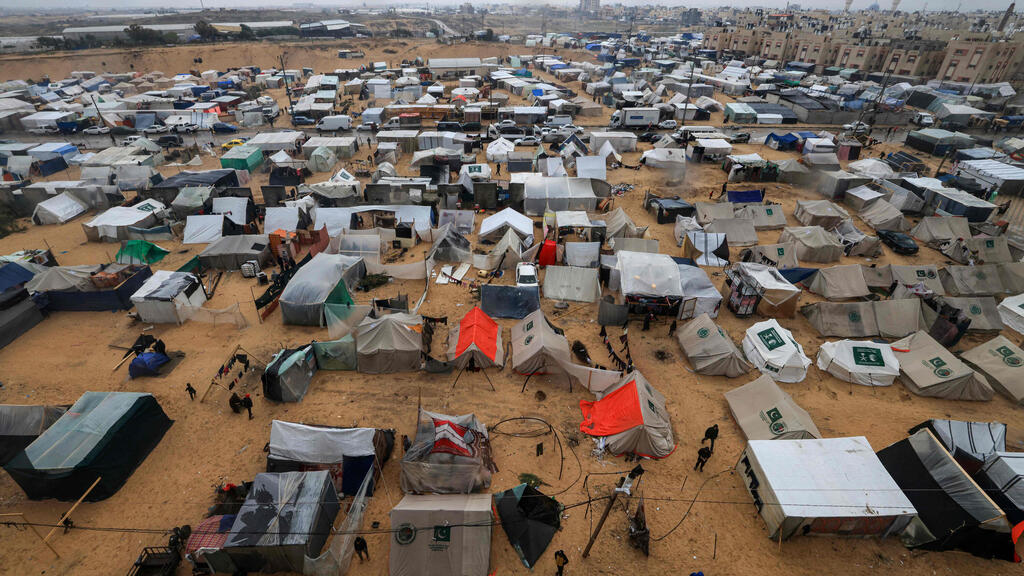The rate of disease infections spreading among the population in the Gaza Strip is rising, with local doctors reporting a lack of means to monitor the situation before it deteriorates. The World Health Organization's emergency director in the Middle East, Rick Brennan, warns that epidemics could break out in Gaza "very rapidly" in the absence of early detection measures.
Read more:
Israel has been very careful about delivering humanitarian aid to the Gaza Strip, part of which is routinely seized by Hamas terrorists. Moreover, international health organizations warning about the situation in Gaza have not succeeded in delivering medicines or even checking on the Israeli hostages held by Hamas for almost three months.
In recent days, Israel has expressed concerns that IDF soldiers might be exposed to dangerous infections, fungi and molds growing in the Gaza soil contaminated from sewage leaks. This week, it was reported that a soldier died of a fungus he contracted in Gaza. The soldier lost both legs due to the injury, and the wound likely was exposed to the contaminated ground at that time. He was initially treated at Assuta Ashdod Hospital and later transferred to Tel Aviv Sourasky Medical Center to receive specialized treatment for the severe infection that spread throughout his body.
"This is something that happens in combat zones, not just in Gaza," Dr. Bibiana Hazan, director of the Infectious Diseases Unit at Emek Medical Center, explained to Ynet. "Medical literature reports that it also happened in the wars of American soldiers in Afghanistan and Iraq. War injuries are very complex, and when it comes to a non-sterile environment like a battlefield, it can be dangerous."
"Bacteria and fungi are part of our environment, and when they 'settle' on an area that is very damaged due to lack of tissue, pressure, and poor blood supply, then the place can easily become infected. The bacteria and fungi in Gaza are no different from the bacteria and fungi we have here. What makes these infections so complex and dangerous is the condition of the wound from the start," she added.
Currently in Gaza, the number of cases of diarrhea in children less than 5 years old jumped at a monthly rate of 20 times to more than 100,000. There were also cases of respiratory infection as well as many cases of chicken pox, scabies, lice and various skin infections.
Dr. Tahrir al-Sheikh, a pediatrician, worked at the Al Nasser hospital, and was forced to move to southern Gaza when the war broke out. There she provides medical services in a school that has become a place of refuge for displaced Gazans. "We used to take cultures, and adjust the treatment according to the results. Now it is impossible to do this, and infectious diseases are spreading," she said. She said that she treated a four-month-old baby who had severe diarrhea and also said there is a lack of coronavirus tests. "I had cases of patients who did not respond to treatment, but I could not tell if they had corona, because there is no the diagnostic equipment," she said.
UNRWA's director of communications, Juliet Touma, visited the facility in Khan Younis that can accommodate about 1,000 people and has turned into a shelter for about 30,000. "400 people share one toilet. There is not enough water for showers and cleaning and there are not enough hygiene products," she said.


